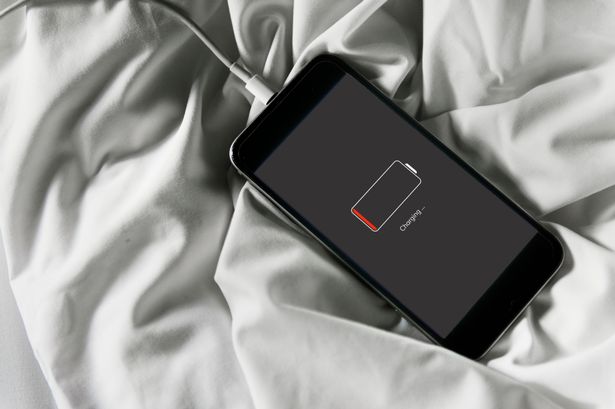Science
Experts Urge Caution: Overnight Smartphone Charging Risks Revealed

Smartphone users are being warned that charging their devices overnight may be detrimental to battery health. While many have adopted this practice for convenience, experts assert that it poses significant risks to the longevity of lithium-ion batteries.
According to a spokesperson from Outplayed, “Most people don’t realise that overnight charging is one of the worst things you can do to a lithium-ion battery. It’s convenient, but convenience often comes at a cost.” This insight reflects a growing concern among technology specialists who argue that such habits can lead to costly battery replacements and increased electricity bills.
Many individuals find themselves with low battery life by bedtime, leading them to plug in their phones overnight. This seems sensible, as it ensures a fully charged device for the next day. However, this common habit can actually harm the smartphone’s battery over time. As reported by the Manchester Evening News, users may face around £100 in costs for professional battery replacements if their devices deteriorate due to improper charging.
Understanding Battery Degradation
Modern smartphones, while equipped with advanced technology, house delicate lithium-ion batteries. Heat generation during charging significantly impacts these batteries, which can degrade faster in warmer conditions. When a phone reaches 100 percent charge, the charger does not simply switch off; it enters a phase known as “trickle charging.” This keeps the battery at maximum capacity by continuously supplying a small amount of power, akin to “constantly filling up a full glass of water.”
The spokesperson from Outplayed elaborated on this process, stating, “The battery is working overtime to manage this constant input, which wears out the cells much faster than you’d expect.” Continuous charging at full capacity can stress battery cells compared to maintaining a charge within the range of 20 to 80 percent.
Tips for Better Charging Habits
To help users preserve their smartphone battery life, experts recommend several small adjustments. One effective strategy is to charge the phone during the day, allowing users to disconnect once it reaches full capacity. Users should also aim for partial charges rather than allowing their phones to drop to zero before fully recharging.
Additionally, using a slower charger when time allows can also benefit battery health. Although fast-charging options are widely marketed, they can generate more heat and cause additional stress on the battery.
In response to these concerns, technology companies are developing features designed to extend battery life. For instance, Samsung’s Protect Battery mode and Apple’s Optimised Battery Charging learn user routines and limit charging beyond 80 percent until necessary. These innovations aim to mitigate the risks associated with overnight charging while enhancing overall user experience.
As smartphone technology evolves, understanding and adapting charging habits can lead to improved battery longevity and reduced costs for users. By implementing these simple changes, individuals can ensure their devices remain reliable and perform optimally for years to come.
-

 Health2 months ago
Health2 months agoNeurologist Warns Excessive Use of Supplements Can Harm Brain
-

 Health2 months ago
Health2 months agoFiona Phillips’ Husband Shares Heartfelt Update on Her Alzheimer’s Journey
-

 Science1 week ago
Science1 week agoBrian Cox Addresses Claims of Alien Probe in 3I/ATLAS Discovery
-

 Science5 days ago
Science5 days agoNASA Investigates Unusual Comet 3I/ATLAS; New Findings Emerge
-

 Science3 days ago
Science3 days agoScientists Examine 3I/ATLAS: Alien Artifact or Cosmic Oddity?
-

 Entertainment3 months ago
Entertainment3 months agoKerry Katona Discusses Future Baby Plans and Brian McFadden’s Wedding
-

 World2 months ago
World2 months agoCole Palmer’s Cryptic Message to Kobbie Mainoo Following Loan Talks
-

 Entertainment3 months ago
Entertainment3 months agoEmmerdale Faces Tension as Dylan and April’s Lives Hang in the Balance
-

 Entertainment3 months ago
Entertainment3 months agoLove Island Star Toni Laite’s Mother Expresses Disappointment Over Coupling Decision
-

 Entertainment2 months ago
Entertainment2 months agoMajor Cast Changes at Coronation Street: Exits and Returns in 2025
-

 World2 months ago
World2 months agoCoronation Street’s Asha Alahan Faces Heartbreaking Assault
-

 Entertainment2 weeks ago
Entertainment2 weeks agoStefan Dennis and Dianne Buswell Share Health Update on Strictly Come Dancing









